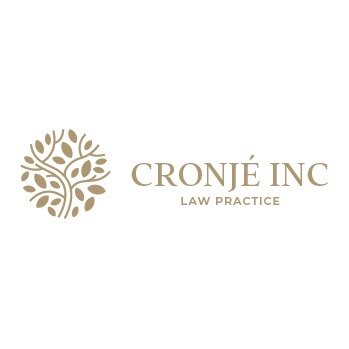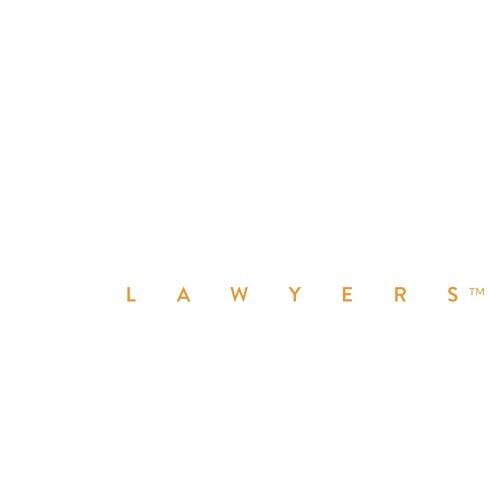Best Public-Private Partnerships (PPP) Lawyers in Windhoek
Share your needs with us, get contacted by law firms.
Free. Takes 2 min.
List of the best lawyers in Windhoek, Namibia
About Public-Private Partnerships (PPP) Law in Windhoek, Namibia
Public-Private Partnerships (PPP) refer to collaborative agreements between the government and private sector entities to deliver public infrastructure or services. In Windhoek, Namibia, PPPs have become increasingly important as a means to finance, build, and operate projects such as roads, hospitals, water supply systems, and other critical infrastructure. The aim is to leverage private sector expertise, efficiency, and capital, while ensuring that public interests are safeguarded. Namibia has adopted specific legal and regulatory frameworks to ensure the effective implementation and management of PPP projects, fostering economic growth and sustainable development in the capital and beyond.
Why You May Need a Lawyer
Public-Private Partnership projects can be complex due to their scale, duration, and the variety of interests involved. Here are common situations where hiring a lawyer specializing in PPPs in Windhoek may be crucial:
- Structuring and negotiating PPP contracts to safeguard your interests
- Interpreting the regulatory framework and compliance requirements in Namibia
- Drafting request for proposals, concession agreements, or project documents
- Managing risks and liabilities associated with PPP projects
- Resolving disputes between public authorities and private partners
- Guiding on procurement processes and competitive bidding procedures
- Facilitating due diligence and evaluating feasibility studies
- Advising on project financing, security instruments, and investment protection
- Assisting in stakeholder engagement or public consultation procedures
- Supporting compliance with environmental, social, and governance (ESG) standards
Local Laws Overview
PPP activities in Windhoek are primarily governed by the Public Private Partnership Act, 2017, which establishes the legal basis for PPP arrangements throughout Namibia. The Ministry of Finance oversees the policy framework, and the PPP Committee is responsible for approving, monitoring, and evaluating PPP projects. Key aspects of local laws relevant to PPPs in Windhoek include:
- Mandatory adherence to procurement regulations for transparency and competitiveness
- Requirements for project proposals to undergo economic, technical, and financial assessments
- Clear allocation of risks and rewards between public and private partners
- Due diligence obligations for both governmental and private participants
- Obligatory stakeholder consultations and environmental impact assessments for major projects
- Contract terms regarding dispute resolution, early termination, and force majeure events
- Periodic monitoring, evaluation, and reporting throughout the project lifecycle
- Guidelines for asset ownership transfer at the end of contract terms (where applicable)
- Statutory oversight by the PPP Committee to ensure compliance with national policies
Frequently Asked Questions
What is a Public-Private Partnership (PPP)?
A PPP is a contractual agreement between a public-sector entity and a private-sector partner to finance, build, and operate a project or service that would otherwise be provided by the public sector.
Are PPPs legal in Namibia?
Yes, PPPs are legal and regulated under the Public Private Partnership Act, 2017, which provides the legal foundation for their establishment and management in Windhoek and throughout Namibia.
Who approves PPP projects in Windhoek?
The PPP Committee, established under the Ministry of Finance, reviews and approves PPP projects to ensure compliance with national laws and public interests.
Can foreign investors participate in PPPs in Namibia?
Yes, foreign investors are eligible to participate in PPP projects, provided they comply with Namibian laws, procurement procedures, and investment regulations.
What types of projects are commonly implemented as PPPs in Windhoek?
Typical PPP projects include infrastructure such as roads, power generation, water supply, hospital facilities, and educational institutions.
What are the main risks in PPP arrangements?
Risks can include construction delays, cost overruns, regulatory changes, financing issues, and disputes between partners. Proper contract structuring and legal guidance can help manage these risks.
How is risk shared between the public and private partners?
Risk allocation is negotiated in the PPP agreement, with each party responsible for the risks it can best manage, such as design, construction, financing, or operational risks.
What is required for the procurement process in PPPs?
Procurement must follow competitive, transparent processes to ensure fair selection of private partners, as outlined in both the Public Procurement Act and the PPP Act.
How are disputes in PPPs resolved?
Dispute resolution mechanisms are typically set out in the PPP contract, including negotiation, mediation, arbitration, or litigation if necessary.
Why is legal due diligence important in PPP projects?
Due diligence helps identify legal risks, compliance issues, and potential liabilities, enabling parties to make informed decisions before signing binding agreements.
Additional Resources
If you need more information or support on PPPs in Windhoek, the following entities and resources may be helpful:
- Ministry of Finance (Public Private Partnership Unit)
- Public Private Partnership Committee
- Namibia Investment Promotion and Development Board (NIPDB)
- Windhoek Municipal Council
- Namibian Law Society
- Namibia Public Procurement Authority
- Namibia Chamber of Commerce and Industry
- Relevant Namibian law firms with PPP experience
Next Steps
If you are considering engaging in a Public-Private Partnership in Windhoek or are currently facing legal concerns related to a PPP project, consider the following steps:
- Gather all relevant project documents and correspondence
- Research and shortlist law firms or lawyers with direct experience in PPP matters
- Schedule a consultation to discuss your unique needs, goals, and risks
- Prepare questions regarding project structuring, compliance, and dispute resolution
- Ensure that you understand all obligations under Namibian law before making any commitments
- Stay updated on local regulations and best practices as PPP laws may evolve over time
Working with an experienced PPP lawyer can help you navigate the regulatory landscape, protect your interests, and contribute to the successful development of important infrastructure and services in Windhoek.
Lawzana helps you find the best lawyers and law firms in Windhoek through a curated and pre-screened list of qualified legal professionals. Our platform offers rankings and detailed profiles of attorneys and law firms, allowing you to compare based on practice areas, including Public-Private Partnerships (PPP), experience, and client feedback.
Each profile includes a description of the firm's areas of practice, client reviews, team members and partners, year of establishment, spoken languages, office locations, contact information, social media presence, and any published articles or resources. Most firms on our platform speak English and are experienced in both local and international legal matters.
Get a quote from top-rated law firms in Windhoek, Namibia — quickly, securely, and without unnecessary hassle.
Disclaimer:
The information provided on this page is for general informational purposes only and does not constitute legal advice. While we strive to ensure the accuracy and relevance of the content, legal information may change over time, and interpretations of the law can vary. You should always consult with a qualified legal professional for advice specific to your situation.
We disclaim all liability for actions taken or not taken based on the content of this page. If you believe any information is incorrect or outdated, please contact us, and we will review and update it where appropriate.















